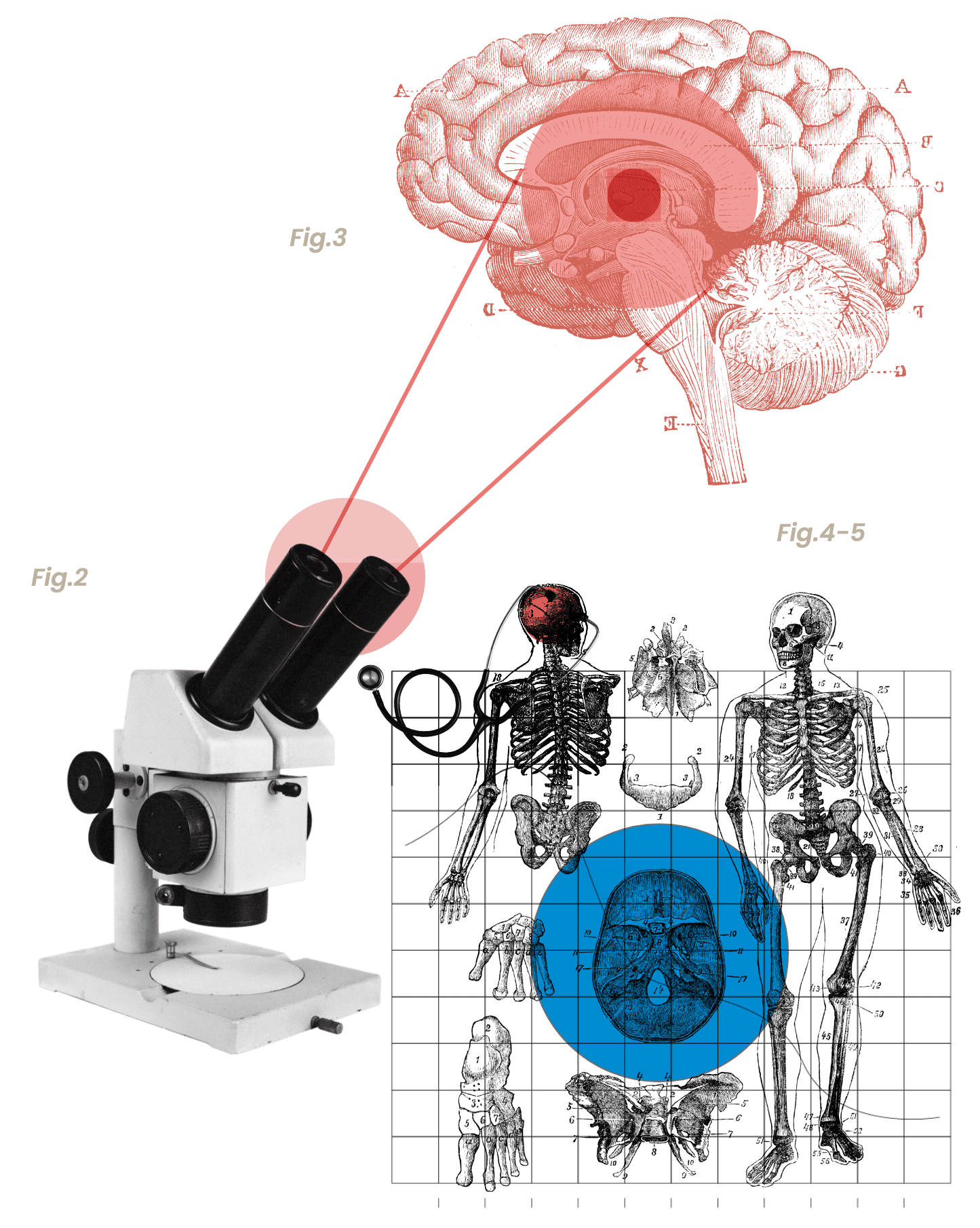Story 3
#3


The importance of translating Science - in health and in sickness
The importance of translating Science - in health and in sickness
It’s not always easy to understand what a doctor tells (us). And a Parkinson’s diagnosis is no exception. Even more so, for beyond its definition, a lot remains to be defined: causes, symptoms, what nows and what thens.
Fortunately, there’s a way out — or so says Carlos Fiolhais, physics professor and communicator par excellence, who has been trying to demystify science and its terms for several years now, believing that there must be a universal language between us and doctors:

Fig. 1 Carlos Fiolhais
Fig. 2 Binocular microscope, XX century
Fig. 3 Brain - Basal Ganglia
Fig. 4 Human skeleton, front and back, Trousset encyclopedia, 1886 - 1891
Fig. 5 Middle and anterior-posterior section of brain, Usual Medicine Dictionary, Dr Labarthe, 1885

“Doctors must convey truth — and hope. Their commitment is to do the best they can; ours is to trust them.”, explains Fiolhais.
A two-way street that underlines the importance of making the best use of an appointment’s time: either with a symptom diary or questioning assumptions.
“A few days ago, I heard a man talking about a serious illness that he had just been diagnosed with.
When he asked ‘What now?’, the doctor’s immediate response was ‘Now, let’s deal with it.’”, he recalls.
And concludes: so that almost nothing is lost in translation, and everyone understands what we’re saying, “when it comes to science, we must show more method than result; more spirit, than body”.
Fig. 1 Carlos Fiolhais
Fig. 2 Binocular microscope, XX century
Fig. 3 Brain - Basal Ganglia
Fig. 4 Human skeleton, front and back, Trousset encyclopedia, 1886 - 1891
Fig. 5 Middle and anterior-posterior section of brain, Usual Medicine Dictionary, Dr Labarthe, 1885
ON/JUN22/G/082
date of preparation June 2022




















